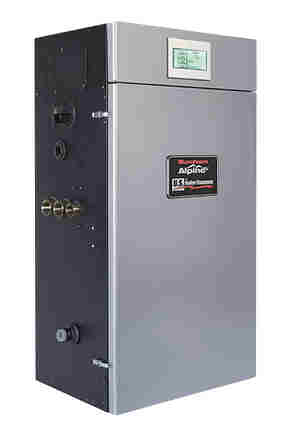Upgrading to a high-efficiency boiler can have a big impact on your energy bills. If you’re not sure how much you could save by making upgrades to your home heating system, a home energy audit can be a great first step.
Heating and cooling costs more money and uses more energy than any other system in your home, especially if your furnace or boiler is 10 years old or more. Even if the system still works well, it may be cost-effective to replace it with a modern high-efficiency system.
Home Energy Audits
Home energy audits are recommended by the U.S. Department of Energy (DOE) to homeowners who want to know if making energy efficiency upgrades is worth the expense. Audits can tell you exactly how efficient your home is, what improvements could be made, and help you implement some simple steps to reduce your energy use and save money on your utility and fuel bills.
Your professional heating contractor can conduct your home energy audit, and you will be able to decide which improvements you want to make immediately and which would be better to hold off for the future.
You could also check out Home Energy Saver, the DOE’s free online home energy audit tool, to see how much you could save by making certain upgrades, and which ones make the most sense based on your home’s climate and your local energy prices.
High Efficiency Heating
 U.S. Boiler Company is a leading manufacturer of home heating equipment. We have introduced more new, high efficiency products over the last few years than any other company in the history of hydronic heating. We offer a broad selection of ENERGY STAR®-certified gas-fired residential boilers, high efficiency oil-fired boilers, condensing boilers, three-pass oil-fired steam boilers, domestic hot water heaters, and radiators.
U.S. Boiler Company is a leading manufacturer of home heating equipment. We have introduced more new, high efficiency products over the last few years than any other company in the history of hydronic heating. We offer a broad selection of ENERGY STAR®-certified gas-fired residential boilers, high efficiency oil-fired boilers, condensing boilers, three-pass oil-fired steam boilers, domestic hot water heaters, and radiators.
Most new oil boilers have AFUE ratings between 80% and 87%, while gas-fired boilers have ratings of 89% and above. Although gas boilers may be more efficient than oil boilers, they are also typically 10% to 25% more expensive than their gas counterparts.
U.S. Boiler’s most efficient hydronic systems are our high-efficiency Alpine™ gas-fired condensing boiler and the new ALTA gas boiler, which are both ENERGY STAR®-certified. The Alpine™ and ALTA have a 95% AFUE rating.
Because many high-efficiency boilers are more than 90% efficient, replacing an old boiler with a new high-efficiency condensing boiler could immediately save you about 30% on your heating bills.
Selecting a Heating System
In addition to efficiency, there are several other factors to consider before you decide to replace your home heating system:
- Fuel – This will depend on where you live. In the Northeast, heating oil is popular because natural gas is not available everywhere. Because fuel rates vary considerably by geographic location and/or season, it’s also important to know your local rates when comparing your heating system options. Look at your current utility bills or call your current or prospective fuel provider for this information.
- Size – Size is just as important as efficiency. If you choose a system that is too large for your home, its efficiency will be significantly reduced and your operating costs will be higher than necessary. It doesn’t make sense to pay more for a bigger boiler, yet heat the house less efficiently.
- Heat Distribution–The standard “forced air” system that moves heated air through ducts with vents in each room is the most familiar, but other systems also work well. Hydronic systems circulate hot water through radiators, baseboards, and even the floor, to provide radiant heat. This avoids the waste of heated air losing energy in the ducts.
A high efficiency boiler can provide you with lower energy costs and a more comfortable home. Keep in mind that, with each passing season, the sooner you invest in making your home heating system more efficient, the more money you will save.
